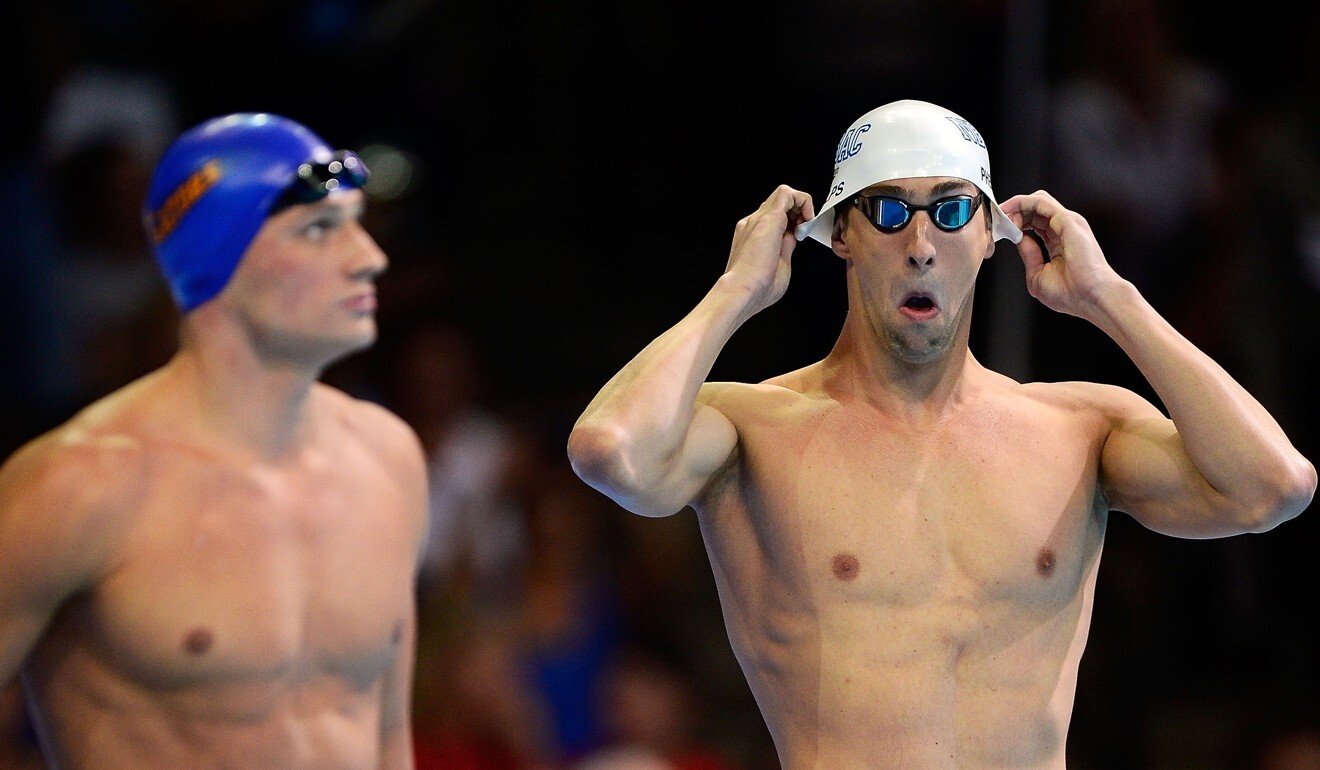
Explainer | Iconic Olymic Games rivalries through history: Johnson vs Lewis, Lin vs Lee, Coe vs Ovett, Sun vs Horton
- The ‘dirtiest race in history’ in 1988 saw Ben Johnson test positive for steroids while Carl Lewis was handed the gold, while Nadia Comaneci and Nellie Kim fought with grace in gymnastics
- Taiwan’s Yang was second to his college mate Rafer Johnson in the 1960 decathlon; Mary Decker and Zola Budd were involved in the most famous fall in Olympics folklore in 1984
Rivalries are the essence of sport and nowhere are these battles more fervently fought out than at the Olympic Games. The more intense the animosity between two world-class opponents the deeper the divisions for fans, neutrals and the media. Aside from the classic hero vs villain narratives, there are the good-natured rivalries where adversaries maintain mutual decorum and respect but – in elite competitor fashion – fight like their lives depended on it.
Here is a look back at some of the fiercest rivalries, often sprinkled with controversy, that the Summer Games have witnessed through the years.

Lin Dan vs Lee Chong Wei
Lin won 28 out of the 40 matches played against Lee. After finishing runner-up to Lin at the 2008 Beijing and 2012 London Olympics, Lee finally triumphed in an epic clash at the 2016 Rio de Janeiro Games semi-finals. He was beaten by Lin’s compatriot Chen Long in the final.

Sebastian Coe vs Steve Ovett
The world saw a flash of English sporting excellence in the early 1980s. Sebastian Coe and Steve Ovett tussled for the world mile record but had never faced-off in a major event. Coe was tipped to win the 800m run, while Ovett was three years undefeated in the 1500m.
Yang Chuan-kwang and Rafer Johnson
Crossing the 1,500m finish line at the 1960 Rome Olympics, an exhausted American decathlete Rafer Johnson collapsed his head into the shoulder of Taiwan’s Yang Chuan-kwang. Johnson claimed gold in the 10-event decathlon, but Yang’s silver was monumental as he became the first Chinese Olympic medallist.
Johnson and Yang had trained together under the same coach at the University of California, Los Angeles. They remained lifelong friends post-competition. Johnson visited “Iron Man of Asia” Yang in his final days before his death in 2007, while the American passed away in 2020.

Justin Gatlin vs Usain Bolt
Jamaica’s Usain Bolt is the undisputed fastest man in the world. Clinching gold in the 100m and 200m for the third Olympics in a row at Rio 2016, “Lightning Bolt” has met his fair share of rivals in his legendary decade-long career.

Gary Hall Jnr vs Alexander Popov
“He is definitely a trash-talker,” American swimmer Gary Hall Jnr said of his rival Alexander Popov, to which the Russian retorted: “He comes from a family of losers.”
Hall hailed from a family of Olympic swimmers. Known for his showbiz-style struts to the pool, his rivalry with “Sprint Tsar” Popov made for compelling theatre.
At the 1996 Atlanta Games, Popov defended his golds in two individual races to Hall’s silvers. Hall went on to clinch relay golds in the 400m freestyle and 400m medley.

Michael Phelps vs Ryan Lochte
Lilly King vs Yulia Efimova
Efimova won her 100m breaststroke semi-final and raised her finger to signal she was “No 1”. Watching from the live stream backstage, King waved her finger back in disapproval. She went on to win her own race in a quicker time and repeated the finger-wagging gesture.
“You wave your finger ‘No 1’ and you’ve been caught drug cheating ... I’m just not a fan,” said King, who later beat Efimova to win gold, while the Russian took home bronze.
King would later say that the pair had moved on from their feud, clasping hands and exchanging pecks on the cheek in 2019.
Nadia Comaneci vs Nellie Kim
Comaneci would score perfect 10s six more times and bag three gold medals at the same Games, eclipsing 1972 Olympic champion Olga Korbut of the Soviet Union.
It was rising Russian star Nellie Kim who matched Comaneci’s brilliance in the 1980 Moscow Games. Kim left Montreal with two flawless scores of 10 and three golds, but trailed Comaneci’s first place in the individual all-around.
Comaneci ended her career with a total of nine Olympic medals, while Kim netted six, both clinching five golds each.

Mary Decker vs Zola Budd
Budd, who would often run barefoot, continued the race with a bleeding ankle against a chorus of boos. She was representing Great Britain at the time to bypass an international ban imposed against apartheid-era South Africa. Budd finished seventh.
Decker initially accused Budd of tripping her up, reportedly saying “don’t bother” in an attempted post-race tunnel apology, but has since forgiven her. Reconciliation came decades later, when the pair met for a jog at the same stadium for the 2016 documentary titled The Fall.

Ben Johnson vs Carl Lewis
It was a showdown between Jamaica-born Canadian world champion Ben Johnson and defending Olympic champion and nine-time gold medallist Carl Lewis. Johnson defeated his American rival with a world record time of 9.79 seconds.

Mack Horton vs Sun Yang

